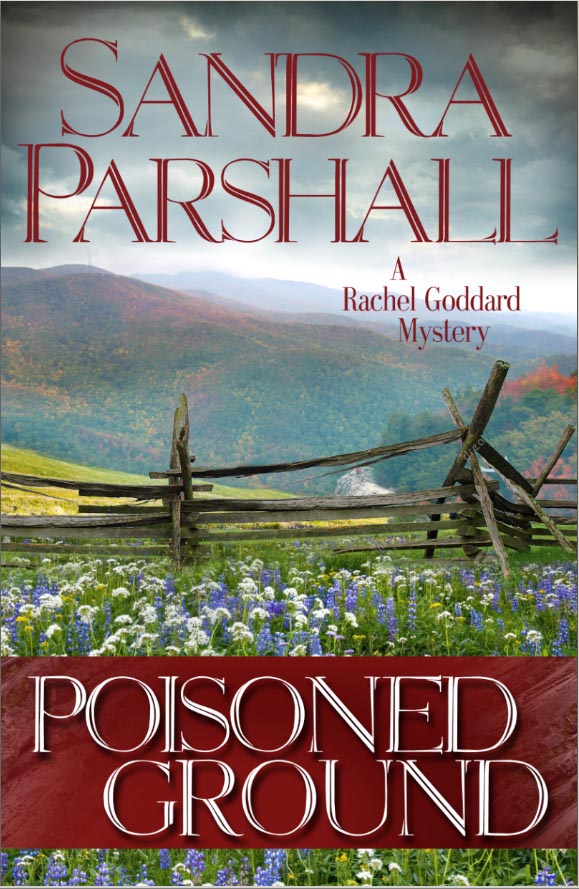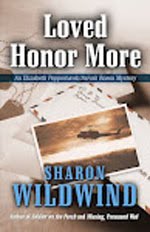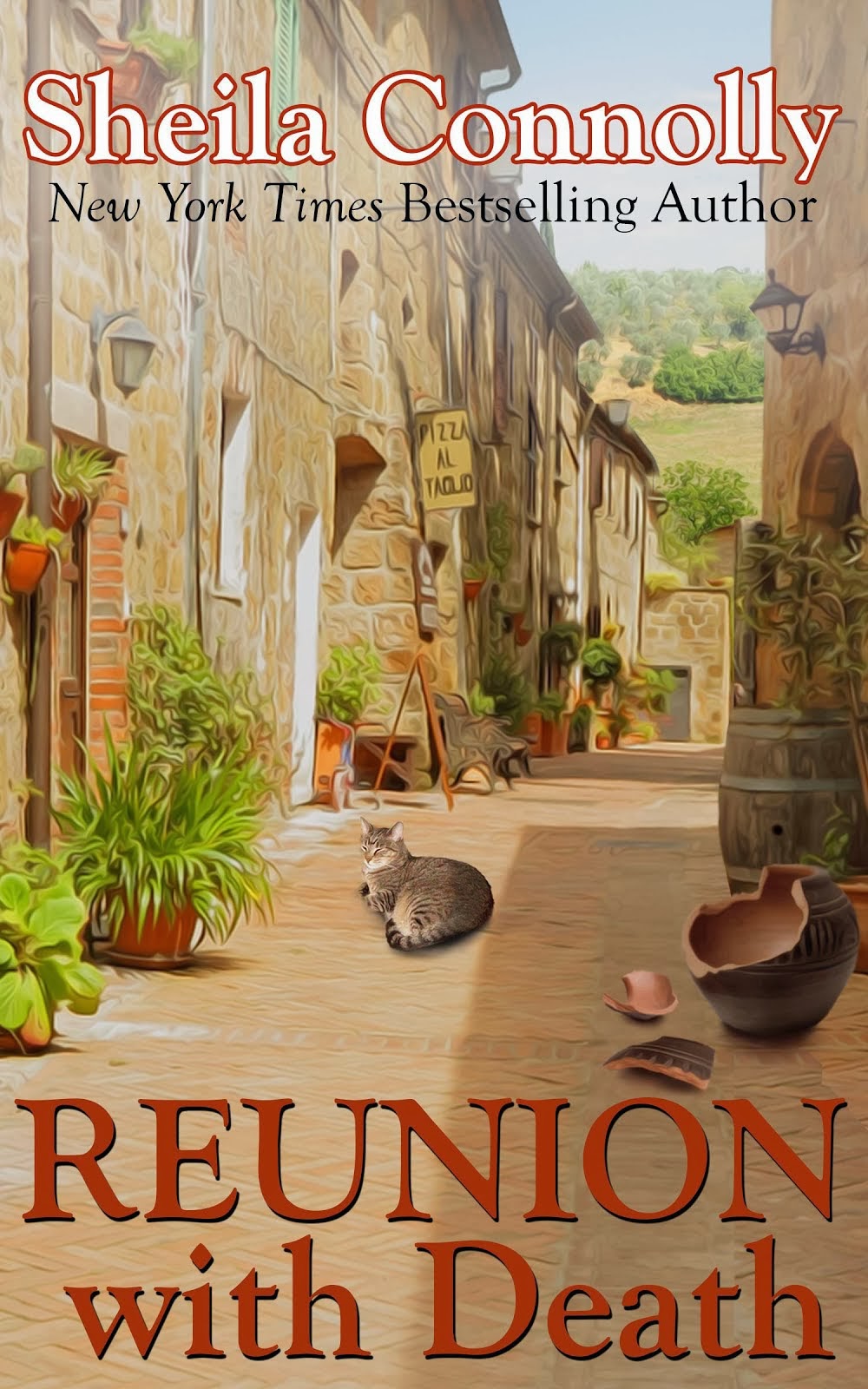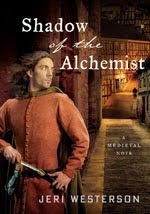
Interview By Lonnie Cruse
I've met Susan and Honora at a couple of conferences and enjoyed spending time with them so I thought our readers would like to learn more about them as well. And if you see two ladies at a mystery conference, wearing chef hats, be sure to elbow your way to the front of the line and sample their cookies!
PDD: Tell us a bit about your books.
H&S: Right now we have two published cozy mysteries in our Ariel Quigley Series, The Chef Who Died Sautéing, and The Lawyer Who Died Trying, both out with Hilliard and Harris. And we have a total of 13 professions for which we have the skeletal outline for a story. Ariel Quigley is a psychic detective, who talks to ghosts, reads Tarot cards, and has precognitive dreams, all of which give her clues to solving the murders she encounters. But she has to solve the mystery through deductive reasoning, just as should be the case in any other good mystery. We’ve also written a thriller with a metaphysical twist that is with our agent, looking for a good home.
PDD: How did you come to write a book together? And how difficult (or easy) is it to co-author a book?
H&S: We met at a writers’ conference in upstate New York and later found out we’re cousins. And we’ve been in business together for the past 14 years in one capacity or another—doing a TV project on the road in a RV, running an antique store, and even being travel agents for about 15 minutes—we both love to travel. Then we bought a grand old house in a little Midwest town where we could run a metaphysical retreat and workshop center. And when Honora went back to college teaching for a few years, Susan assisted by building her websites. So we work really well together.
Because we’d sampled so many different professions and had met a lot of crazy characters as we traveled, we sat down one day and compiled a long list of people who would look ever so much better lying flat with their toes turned up and about six feet of dirt on top of them. Then Susan, who was once married to a chef, wrote a description of the restaurant where he had worked, and Honora had a dream about a Fat Man ghost who was a protective spirit, and she wrote that scene. After a few more discussions, we were on our way to outlining the first novel, and for that first one, we sat side by side at the computer and wrote it scene by scene using the outline we’d created. And it’s not hard to do that, because we tend to echo each other’s words a lot of the time anyway.
For the second novel and the thriller, and in the interest of best utilizing creative time, after we’d outlined the books together, Honora did the first draft and Susan did the second. And that seems to work pretty well, too.
PDD: How do you promote your books? What works best for you?
H&S: First, by putting on silly costumes so we get noticed, then going to conferences, doing speeches at Kiwanis clubs, doing book signings along with book talks at libraries and independent book stores, and just putting ourselves out in the public eye. An unknown writer makes fans one person at a time, so we try to get the names and emails of everybody we meet, and we put them in our database and send out a newsletter periodically. It was going out every couple of weeks until the end of June when Sue was diagnosed with breast cancer, though now she sends out her carepages.com news update just about weekly. And I’m sure once the dust settles and we’re in a routine with her treatment program, we’ll be back to sending out the mystery newsletter regularly, too.
PDD: What led you to write two cookbooks along with your mystery series? What's it like writing cookbooks along with mysteries? And HOW in the world did you come up with a recipe for Peanut Soup? I love the sound of it.
H&S: We didn’t know when we were writing The Chef Who Died Sautéing that it was going to be considered a “culinary mystery.” We were just writing what we thought was a good, convoluted tale worthy of Poe and Doyle. But it turned out many of our readers decided it was a culinary mystery—it does have 9 chefs in it, so maybe they’re right! And one of those chefs is Ariel’s friend Bernice Wise, who is a psychotherapist in the D.C. area. Anyway, as we started promoting ourselves at conferences and bookstores, we decided to wear chef hats and aprons. And as we were doing book signings around the country, people would come up and say, “Oh, is this a cookbook?” And we’d reply, “No, it’s a mystery. See, it says ‘Who Died’ in the title.” And they’d say, “Oh, too bad, if it had been a cookbook, I would have bought it.” So we got the idea for having our protagonist, Ariel, help the authors put together a cookbook for all the food that’s described in the novel. And Hilliard and Harris liked the idea and agreed to publish the cookbooks as companions to the novels. So we now have “Killer Cookbooks” to go with each novel, and as we’re writing, we don’t just have our characters go out to eat—they have to go out and eat something unusual so that we can put the recipe for it into the “Killer Cookbook” for that novel. And since Susan is more of a cook than is Honora, she generally compiles the first draft of the cookbook. This works well, too, because Honora is a really nitpicking copy editor, so she wants the last word on the final drafts of the cookbooks!
Peanut soup actually was a staple for early colonial cooking—it’s on the menu of a couple of restaurants in Alexandria, Virginia, and at the restaurant at Mount Vernon, which was George Washington’s home. So it was easy to find recipes for it. And having Bernice prepare it in the novel became a lead-in to our story of Bernice’s resident colonial ghost, Annie Grace.
PDD: Did winning a Lovey and being nominated for the Agatha give you a step up in your writing or a boulder to climb over in order to "top that?"
H&S: We were thrilled to be Lovey winners and Agatha nominees, and both of these honors increased our book sales, especially on Amazon. We also think that we have topped our first novel, both with the second in the series and with the thriller. But we haven’t had much chance to promote the second novel yet, and as we noted, the thriller is still out looking for a publishing home.
PDD: Susan is currently fighting a cancer battle and we are all cheering for her. How has that battle affected you as a writing team and promoting team?
H&S: We found out that Susan had cancer only two months ago, and we’ve had to scramble since then to get her tested and into a treatment program—that has had to take precedence over everything else in our lives. Because we live in a tiny little town on the Illinois-Indiana border, we had to do a bit of research so we could get a program where all the testing and treatment were in the same place, and Susan found one in Springfield, Illinois, so she’s already had two chemo treatments at this point. The tough part is that Springfield is 3.5 hours from where we live, so it’s a two-day adventure when we take her for treatment.
Also, some of the travel and other things we had planned had to be scrapped. We were scheduled to do a two-hour workshop called “A Short History of Sex” for the Romance Writers of America annual conference in Dallas in July, but we had to cancel that gig. However, we did manage to go to the “Killer Nashville” conference in August, and we’ll still be doing our “Metaphysics, Magic, and Things that Go Bump in Books” pre-conference workshop at the “Great Manhattan Mystery Conclave” in September. We had to cancel a trip to Spain we were going to make in November, but we’re now planning a trip to China for next June instead. So life goes on, now squeezed in between the three-week time blocks that are determined by when Susan has to go to Springfield for treatment.
PDD: Each of your books has a lovely sketch in the front pages and there are sketches of each of you on your website. Would you tell us a bit about the artist?
H&S: The artist for the Fat Man ghost cartoons and for the sketches of us on the web site is Susan’s mum, Elizabeth Smily, who is a well-known professional portrait artist in Canada. She was in art school at the Royal Academy when World War II broke out, so she became a jeep driver for the British Women’s Army Corp. We have a wonderful picture of her grinding the tappets on her jeep from that period. And while she was in the Army, her parents were notified that one of her paintings—a picture inspired by Toulouse-Lautrec of a dissolute chap sitting at a bar at the Folies Bergere, looking at can-can dancers in the mirror over the bar—was going to be hung on the line at the Royal Academy. (We also have the original of that painting hanging in our education center.) The Army got wind of the fact that a budding artist was one of their service women, so they went and took a look at this lovely young jeep driver, and they turned the picture of her working on her jeep into a recruiting poster. After the war, she finished art school and painted a lot of famous people in England and Europe before she married Sue’s dad and moved to Canada. And she continued to paint up until just this past year, when her arthritis made it difficult for her. So she’s gone into writing and has now published her memoirs, entitled Reminuisances. For more of her marvelous artwork, please go to http://www.elizabethsmily.com/, which is a virtual art gallery Susan put together for her.
PDD: Your website (http://www.arielquigleymysteries.com/) is fantastic. Do both of you garden or just one? And how do you find time with all your travels?
H&S: Both of us have gardened in the past, though when Honora went back to teaching, Susan took over the gardening at the center. She’s the one who designed the Spiritual Garden out of paving stones, with the Tree of Life, the I Ching, the Star of David, and the OM symbol. But nobody had any time for gardening this year—probably just as well, since Southern Illinois has been in severe drought and everything has dried up this summer.
PDD: Your books feature a touch of the metaphysical and you're looking for more ghost stories. Could you tell us a bit about your interest in ghosts and why you included this in your series?
H&S: Both of us have had experiences with ghosts, so we can attest to their reality. And both of us have had psychic experiences, so for us what is usually considered paranormal is really normal. Honora, for example, had her first out-of-body experience when she was four. So when people say there’s no such thing as ghosts or psychic abilities, we just have to take their opinions with a grain of salt—we know what we know, and we believe that “non-believers” simply haven’t had any personal experience that would turn them into “believers”! We actually think everybody has psychic ability and could get lots of psychic hits if they’d just open their minds to the possibilities. Anyway, we included the realm of ghosts and other paranormal experiences in our work because we sort of wanted to de-mystify them for our readers.
PDD: Anything else you'd like our readers to know about you or your series?
H&S: We’re actually pretty funny people, and our books (even the thriller when you get past the grisly murders) have a lot of humor. And we’d love to hear from people who have ghost stories about things they’ve experienced. For those, please contact honora@sunweaver.com and put “Ghost Stories” in the subject line.
Also, Susan got the idea at “Killer Nashville” to do a book on cancer, with stories from mystery writers and readers who have had it or been caregivers for family or friends, and to call the book “The Mysterious Disease.” So we invite any mystery writers or readers with stories to please get in touch with us through susan@sunweaver.com, and put “Cancer Stories” in the subject line.










No comments:
Post a Comment